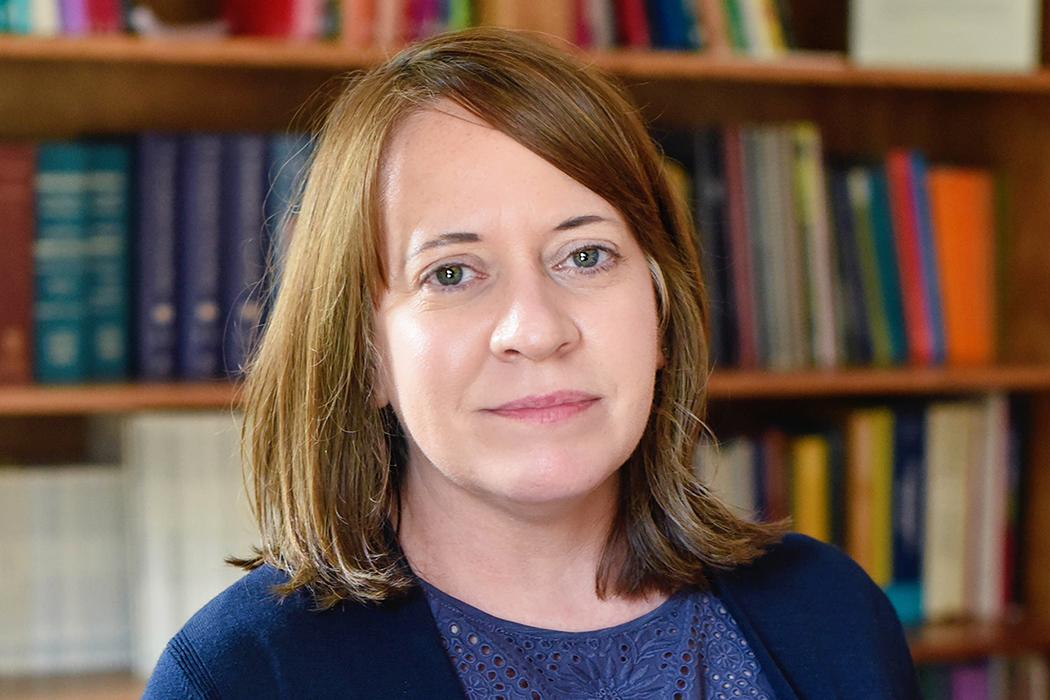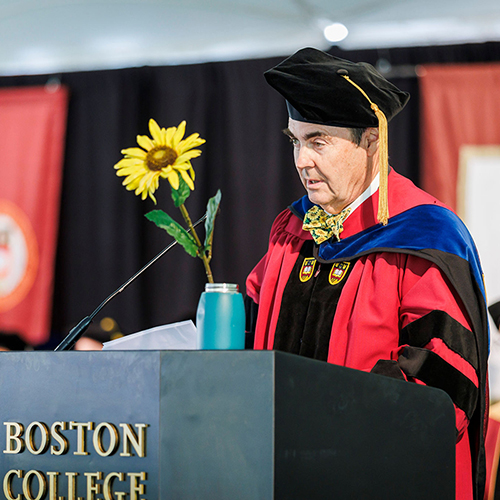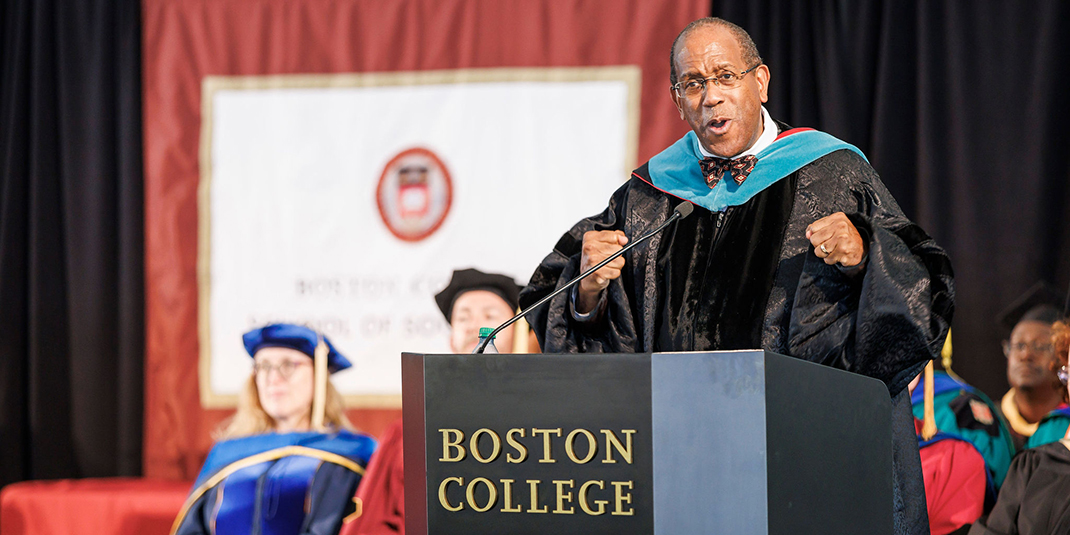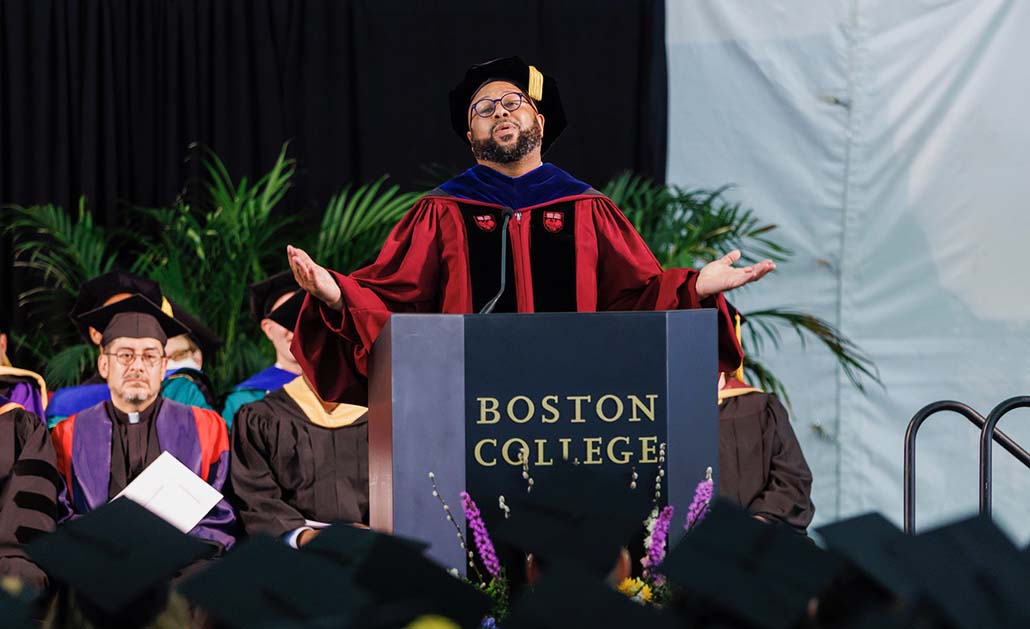
Rachael Dietkus. Courtesy photo.
Rachael Dietkus, a nationally recognized leader in trauma-informed design, will deliver the keynote address at the diploma ceremony for the Boston College School of Social Work on May 19.
The ceremony will take place at around noon on the Lower Campus Lawn, rain or shine.
Dietkus says her talk will focus on how design can expand the reach and impact of social work, and how social workers can infuse design with care, ethics, and a sense of shared responsibility.
“At a time when systems are unraveling and being dismantled, social workers bring vision and accountability to places that desperately need both,” she says. “My speech will urge graduates to recognize care as a practice and a powerful tool for designing more just and humane futures.”
As the founder of Social Workers Who Design, Dietkus works at the intersection of social work, design, and technology to promote ethical, trauma-responsive research and practices in the government, healthcare, and social impact sectors.
Since founding the design advocacy studio in 2018, she has collaborated with federal agencies, nonprofits, universities, and design firms to embed trauma-informed methods into large-scale efforts to transform systems.
Her work has supported teams conducting sensitive research related to veterans benefits, racism in healthcare, gun violence, and survivors of childhood sexual abuse.
“For any one of these projects, my title might be ‘consultant’ or ‘strategist,’” she says. “But when you get down into the weeds, I’m working as a researcher, a social worker, a guide, and a coach, supporting teams as they navigate the work.”
From 2022 to 2024, Dietkus worked at the United States Digital Service, a technology unit within the White House that helps improve the way government services are delivered to the public through technology and design. There, she became the first social worker-designer to integrate trauma-informed care into federal technology and service delivery.
One of her contributions was guiding the design of the Internal Revenue Service’s Direct File program, the government initiative that allowed some taxpayers with simple returns to file with the IRS for free.
“The team wanted some guidance on trauma-informed practices when it came to talking to individuals about their tax filing experiences,” says Dietkus, whose contributions at the USDS have been featured in Fast Company, Fortune, and Design Observer, among other publications. “They were cautious about the sensitivity of talking about finances, which can be a stressful thing for people, so they wanted to discuss some potential scenarios, and the conversations that I had with them were also happening in connection with how to make sure that what they were building was truly an accessible product.”
“What gives me hope is witnessing social workers step into spaces we haven’t always been invited to—particularly in technology and design—and instead of assimilating, we’re bringing care, accountability, and clarity.”
Dietkus is currently writing her first book, “Trauma by Design: Why the Conditions of Care Matter,” slated for release by MIT Press in 2027. The book, she says, will explore how design can both cause harm and facilitate healing, particularly in public interest technology.
An experienced speaker, Dietkus has delivered keynotes and workshops on ethical design, trauma literacy in technology, and systems accountability at conferences worldwide.
She earned a bachelor’s degree in sociology in 2000 and a master’s degree in social work in 2010, both from the University of Illinois Urbana-Champaign.
Her message to new social workers is simple: be bold visionaries, unafraid to break boundaries, cross disciplines, and challenge the status quo.
“There is considerable disruption right now. However, what gives me hope is witnessing social workers step into spaces we haven’t always been invited to—particularly in technology and design—and instead of assimilating, we’re bringing care, accountability, and clarity,” she says. “We’re asking more complex questions, moving with integrity, and refusing to turn away from harm. That inspires hope because the future of social work isn’t just about what we respond to, but what new possibilities we are bold enough to envision and create.”
In addition to Dietkus, several members of the BCSSW community will play prominent roles in the diploma ceremony. Odinakachukwu Princess Udeh, MSW’25, will deliver the invocation and Ximena Mancilla Delgado, MSW’25, will give the student address. Derrick Higgs, MSW’25, and Natalie Grafft, PhD’25, will serve as the degree representatives. After graduates receive their diplomas, Professor Alejandro Olayo-Méndez will offer a benediction.
Seating for guests on the Lower Campus Lawn is first come, first served. People who are unable to attend the event can livestream the ceremony on the University’s Commencement page.





